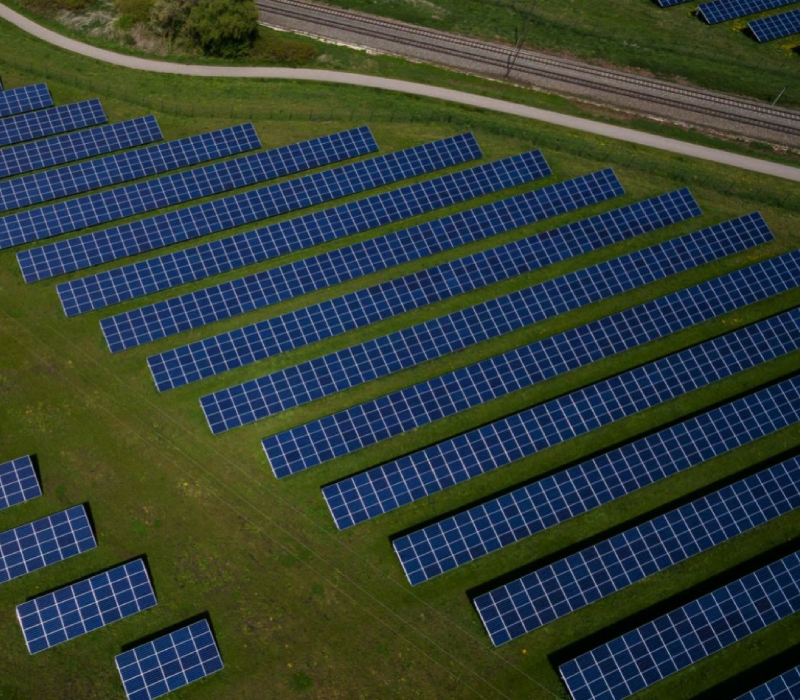
Company Overview
Roarke is an innovative company challenging the status quo of the industry by delivering high quality sustainable services on time while raising stakeholder expectations and outperforming them.
THE WHY
We aim to be the brand that inspires, creates meaningful impact, and makes the customer experience better for everyone every time.
THE WHAT
We provide sustainable solar solutions that make it a cost-optimized source of clean energy, leaving our planet better than we found it. We offer a full range of high-value services that strives to meet your energy optimization needs:
- Design & Engineering
- Planning & Coordination
- Estimation, Scheduling & Procurement
- Site Prep & Construction
- Installation & Commissioning
- Construction Management
- Operations & Maintenance
Solutions
We offer unparalleled solutions in the renewable energy domain.
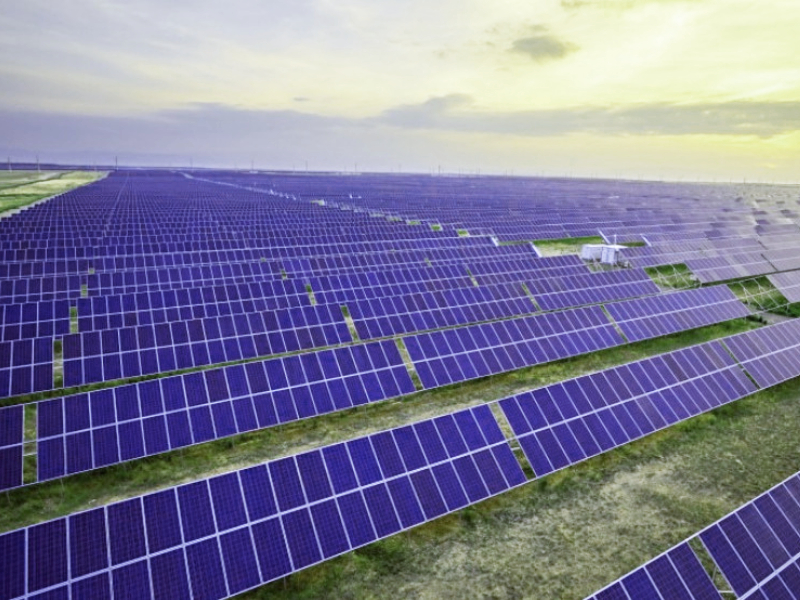
Utility Scale Solar
We have wide ranging experience in the design, engineering, installation and commissioning of grid connected utility scale solar farms. We have expertise with fixed tilt as well as tracker based systems.
Utility Scale Solar
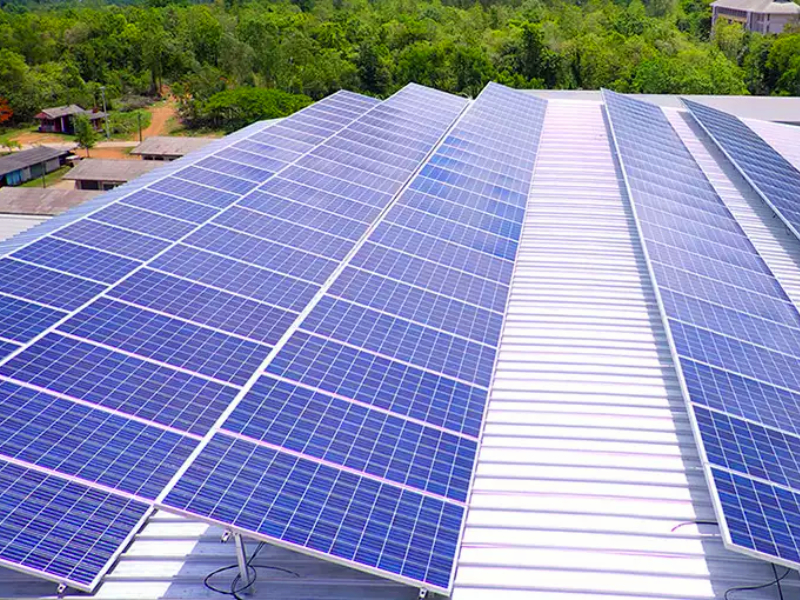
Rooftop Solar
Rooftop solar refers to solar panels installed on the roof of a building to generate electricity. Rooftop solar systems are one of the most common forms of solar power and are particularly well-suited for homes and businesses that have suitable roof space. The panels collect sunlight and convert it into electricity, which can be used to power the building or fed back into the grid for a credit on the owner's electricity bill.
Rooftop solar systems can be grid-tied, meaning they are connected to the centralized power grid, or they can be off-grid, meaning they are standalone systems that are not connected to the grid. In grid-tied systems, excess electricity generated by the panels can be fed back into the grid, and the building can draw from the grid as needed. In off-grid systems, excess electricity is stored in batteries for use when the sun is not shining.
Rooftop solar systems have several benefits, including reduced dependence on non-renewable energy sources, lower electricity bills, and a reduced carbon footprint. They are also relatively easy to install and require minimal maintenance. The cost of rooftop solar systems has fallen significantly in recent years, making them an increasingly affordable option for homeowners and businesses looking to switch to renewable energy.
Rooftop Solar
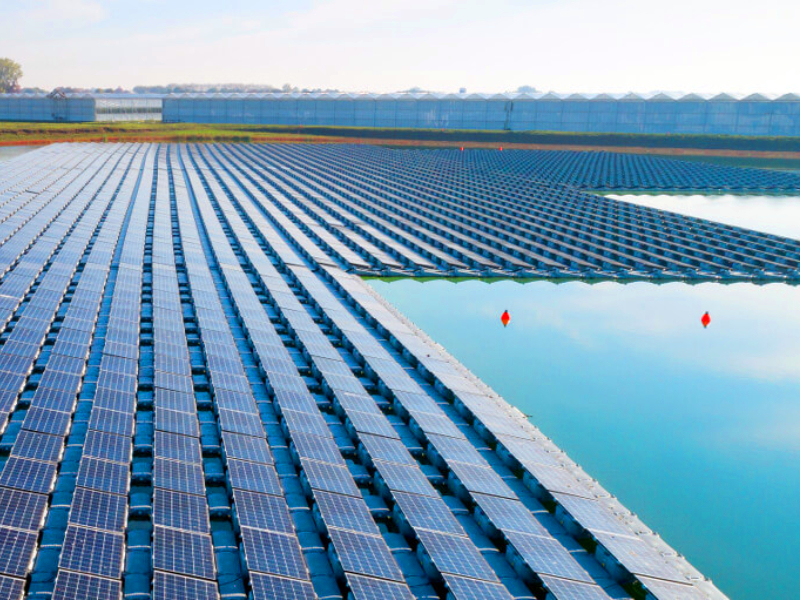
Floating Solar
Floating solar refers to solar panels installed on floating platforms on bodies of water, such as lakes, reservoirs, and rivers. This type of solar power system is becoming increasingly popular as a way to utilize unused water surfaces for renewable energy generation. The floating platforms can also provide shading for the water, reducing evaporation and potentially benefiting the local ecosystem.
The floating solar panels are connected to a system of floats and anchors that keep the panels securely in place. They can be connected to the grid to provide renewable energy to homes and businesses, or they can be used as standalone systems with battery storage for remote locations. Floating solar systems can be particularly useful for areas with limited land space for solar installations.
Floating solar systems have several advantages over traditional ground-mounted solar systems, including reduced land use, lower temperatures for the solar panels due to the cooling effect of the water, and reduced shading of the panels due to the height above the ground. They can also help to mitigate environmental impacts by reducing water evaporation and shading the water to reduce the growth of algae.
Floating Solar
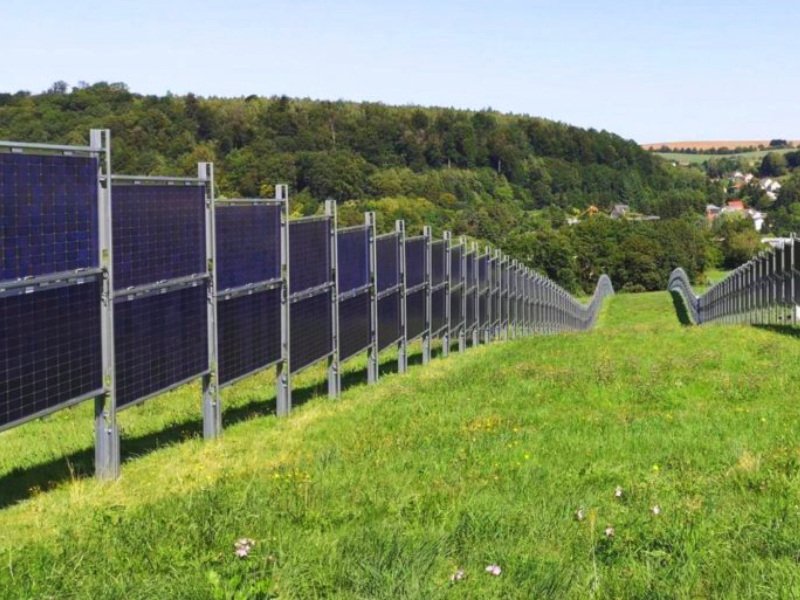
Vertical Solar
Vertical solar refers to solar panels that are installed vertically on walls, facades, or other vertical surfaces. It is a relatively new form of solar power that is becoming more popular as a way to utilize unused vertical space for renewable energy generation. Vertical solar systems can be installed on both residential and commercial buildings, and are well-suited for urban areas with limited land space for ground-mounted solar systems.
Vertical solar panels can be integrated into the design of the building or added as a retrofit solution. They can be connected to the grid to provide renewable energy to homes and businesses, or they can be used as standalone systems with battery storage for remote locations.
Vertical solar systems have several advantages over traditional ground-mounted solar systems, including reduced land use, increased shade and insulation for the building, and improved aesthetics. They can also help to mitigate environmental impacts by reducing the need for ground-mounted solar systems and preserving natural habitats.
Vertical Solar
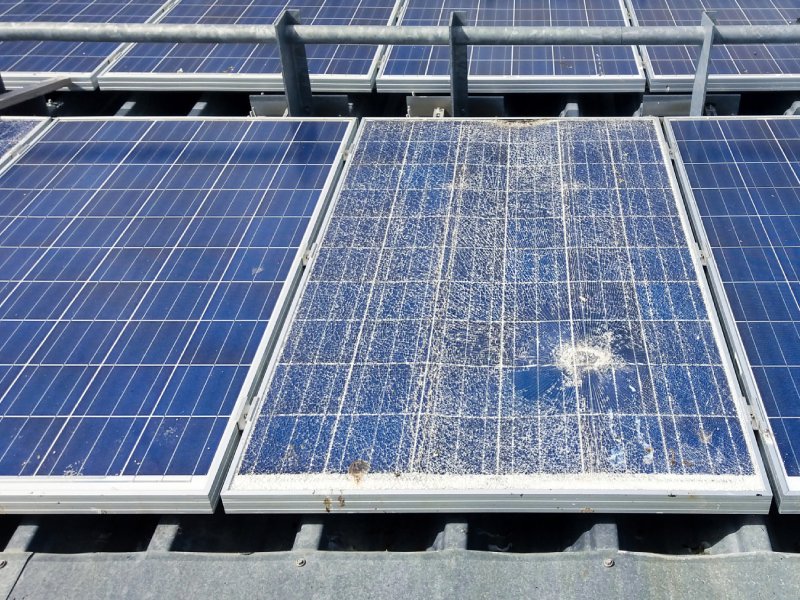
Retrofits + Recycle
Solar panel replacement or retrofit refers to the process of replacing an old or damaged solar panel with a new one. This can be done for a variety of reasons, including damaged panels, panels that are no longer producing electricity at an efficient rate, or panels that have reached the end of their usable lifespan. Replacing solar panels typically involves removing the old panel, installing the new panel, and making any necessary electrical connections. It's important to ensure that the new panel is compatible with the existing solar system, and that the replacement is carried out by a trained and certified solar technician.
Solar recycling refers to the process of recovering valuable materials and components from end-of-life solar panels in order to reduce waste and conserve resources. This process can also help to lower the cost of producing new solar panels and reduce the environmental impact of producing and disposing of these products. The materials and components recovered during solar recycling can be used to produce new photovoltaic cells, as well as other products in a range of industries.
We have expertise in replacement or retrofits as well as recycling. Please reach out to us to get more information.
Retrofits + Recycle
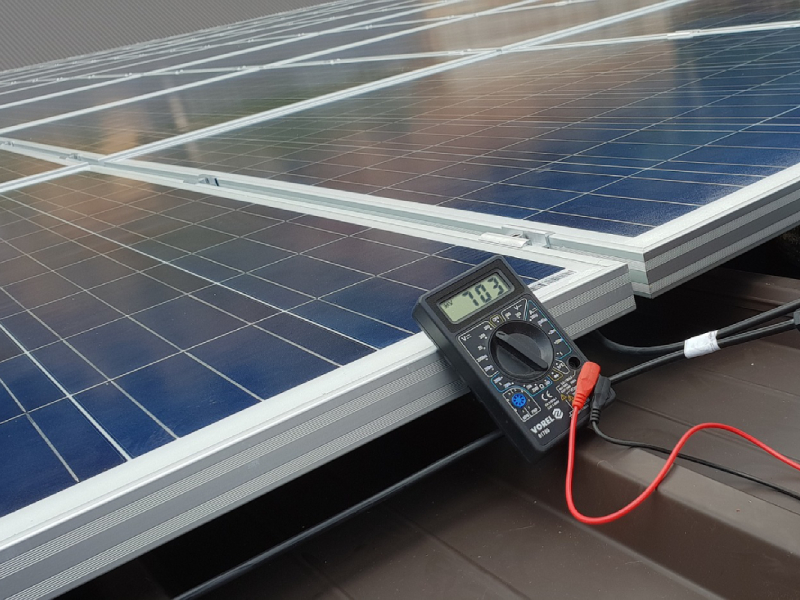
Operations + Maintenance
Solar Operations & Maintenance (O&M) refers to the ongoing upkeep and management of a solar energy system. This includes tasks such as regular cleaning of the panels to maintain their efficiency, monitoring the performance of the system to ensure it's functioning properly, and fixing any issues that arise. Solar O&M also includes preventative maintenance, such as checking and tightening connections, to minimize the risk of system failures and prolong the lifespan of the equipment. Regular solar O&M can help to ensure that a solar energy system continues to operate at optimal performance and to prevent expensive and disruptive failures. It is important to choose an experienced and reputable O&M provider, like Roarke to ensure the best possible results for a solar energy system.
Operations + Maintenance

Financing
Solar financing refers to the various ways that individuals and businesses can obtain the funding they need to install and own solar energy systems. There are several different financing options available, including:
- Purchase: The individual or business pays for the solar energy system outright, usually through a loan or cash payment.
- Leasing: The individual or business rents the solar panels and pays a monthly fee to the leasing company.
- Power Purchase Agreement (PPA): The individual or business enters into an agreement with a solar energy provider, who installs and maintains the solar panels and sells the generated electricity back to the individual or business.
- Government incentives and tax credits: The government offers financial incentives, such as tax credits and rebates, to encourage the adoption of solar energy systems.
We have experience and industry partnerships to help you navigate this complex decision - reach out to us.
Financing

Carbon Offsets + ESG
Carbon offsets refer to a way of mitigating greenhouse gas emissions by financing the reduction of carbon dioxide or other greenhouse gas emissions in another location. The idea behind carbon offsets is that it's possible to reduce emissions more cheaply or effectively in some places than in others. By supporting projects that reduce emissions elsewhere, organizations and individuals can "offset" the emissions they produce through their own activities.
Examples of carbon offset projects include planting trees to absorb carbon dioxide from the atmosphere, investing in renewable energy projects that displace fossil fuel use, or improving energy efficiency in buildings. The offsets can be bought and sold on carbon markets, and the funds raised are used to finance the emission reduction projects.
Carbon offsets are a popular tool for companies, governments and individuals to demonstrate their commitment to reducing their carbon footprint and mitigating the effects of climate change.
ESG stands for Environmental, Social, and Governance, and refers to a set of criteria used to evaluate the sustainability and societal impact of an investment. ESG investing considers factors such as a company's carbon footprint, labor practices, diversity and inclusion policies, and executive compensation, in addition to traditional financial metrics such as revenue and earnings.
The goal of ESG investing is to consider the long-term sustainability of a company, rather than just its short-term financial performance. Investors who focus on ESG factors believe that companies with strong ESG practices are more likely to have stable and profitable futures, and that investing in these companies can help to create a more sustainable and equitable world.
ESG has gained significant attention and popularity in recent years, with many institutional investors and asset managers incorporating ESG criteria into their investment processes. This trend has been driven by growing concern over environmental and social issues, as well as increased awareness of the financial benefits of ESG investing.
Carbon Offsets + ESG
Products
Explore our range of products to optimize your energy costs and improve your Sustainability.
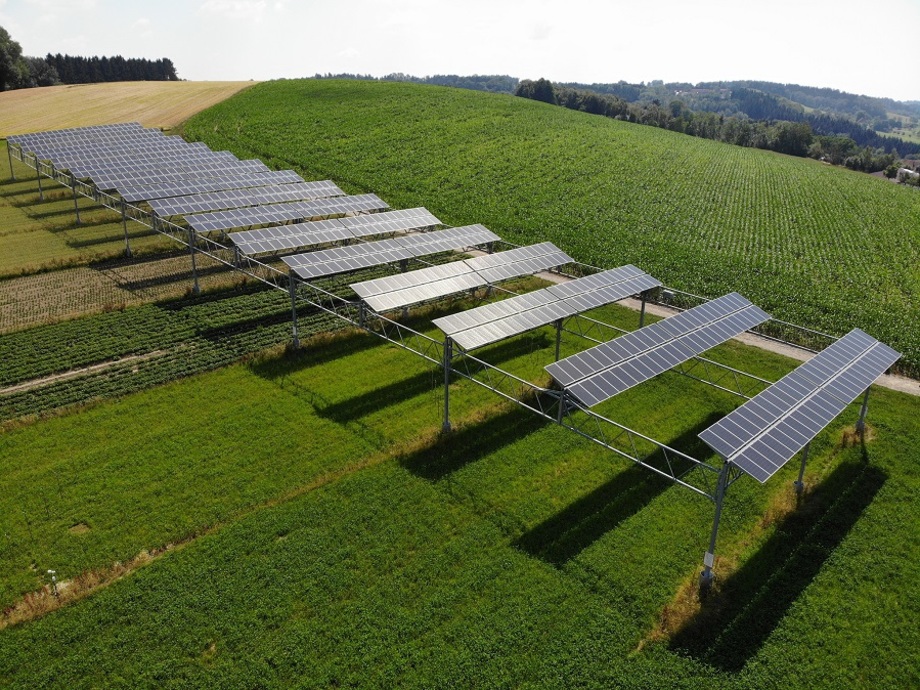
Agrivoltaics, agrophotovoltaics, agrisolar, or dual-use solar (APV) is the simultaneous dual use of areas of land for both solar photovoltaic power generation and agriculture. This is economical and has an enormous potential for arid climate zones. The photovoltaic modules are typically installed on a five meter high structure. The partial shading underneath the photovoltaic modules improves the agricultural yield, and the sun-rich summer increases the solar electricity generation.
Depending on the types of crop grown, the yield of crops grown under the APV system are greater than the reference yield. The solar irradiation underneath the APV system is about 30 percent less than the reference field. In addition to the amount of solar irradiation, the APV system affects the distribution of precipitation and the soil temperature. The shade under the semi-transparent solar modules enables the crops and livestock to better endure the hot and dry conditions typical of our tropical climate. The shading effects and less evaporation result in up to 40 percent higher yields for certain crops.
The electricity production costs of an APV system is competitive with a small PV rooftop system. We anticipate further cost reductions due to economies of scale and learning effects. If the electricity is stored and used on site, additional sources of income arise due to synergy effects. From the technical point of view, farmers can harvest both "food and fuel". Through the dual use of arable land, the main task of food production is met. The additional solar electricity production contributes to the expansion of electric mobility and serves to protect the climate.
With careful design considerations and execution, we can potentially double the land use efficiency for your farm. Feel free to reach out and partner with us.
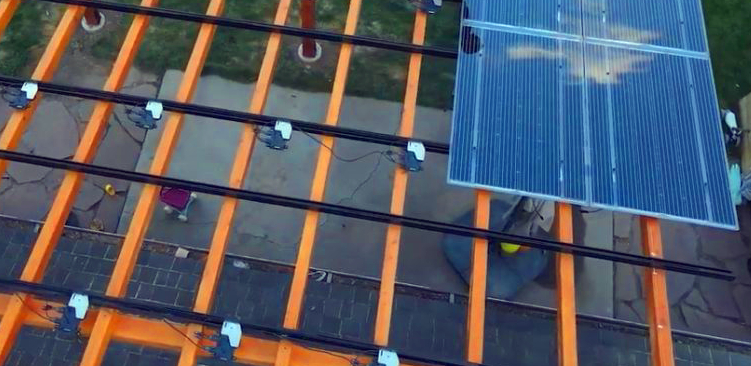
A solar gazebo is a stand-alone structure with a roof of solar panels that act as a cover for the space below. Such gazebos provide a shaded space for multiple uses. Incorporated with roof gardens on terraces, a solar gazebo could become an interesting aesthetic feature, generate clean energy and provides additional usable space.
The generated electricity can be used to power lights, fans, and other appliances within the gazebo or can be stored for later use. Solar gazebos can be used for various purposes, including outdoor entertainment, recreational activities, and even as a source of backup power during power outages. They offer an eco-friendly way to enjoy the outdoors while reducing reliance on the grid.
When used as part of integrated parking spaces, we can bundle them with Electric Vehicle Charging Stations, thus providing complete clean energy solutions and offsetting your carbon footprint.
Ask us how we can partner with you in providing a customized solution, and minimize your energy consumption.
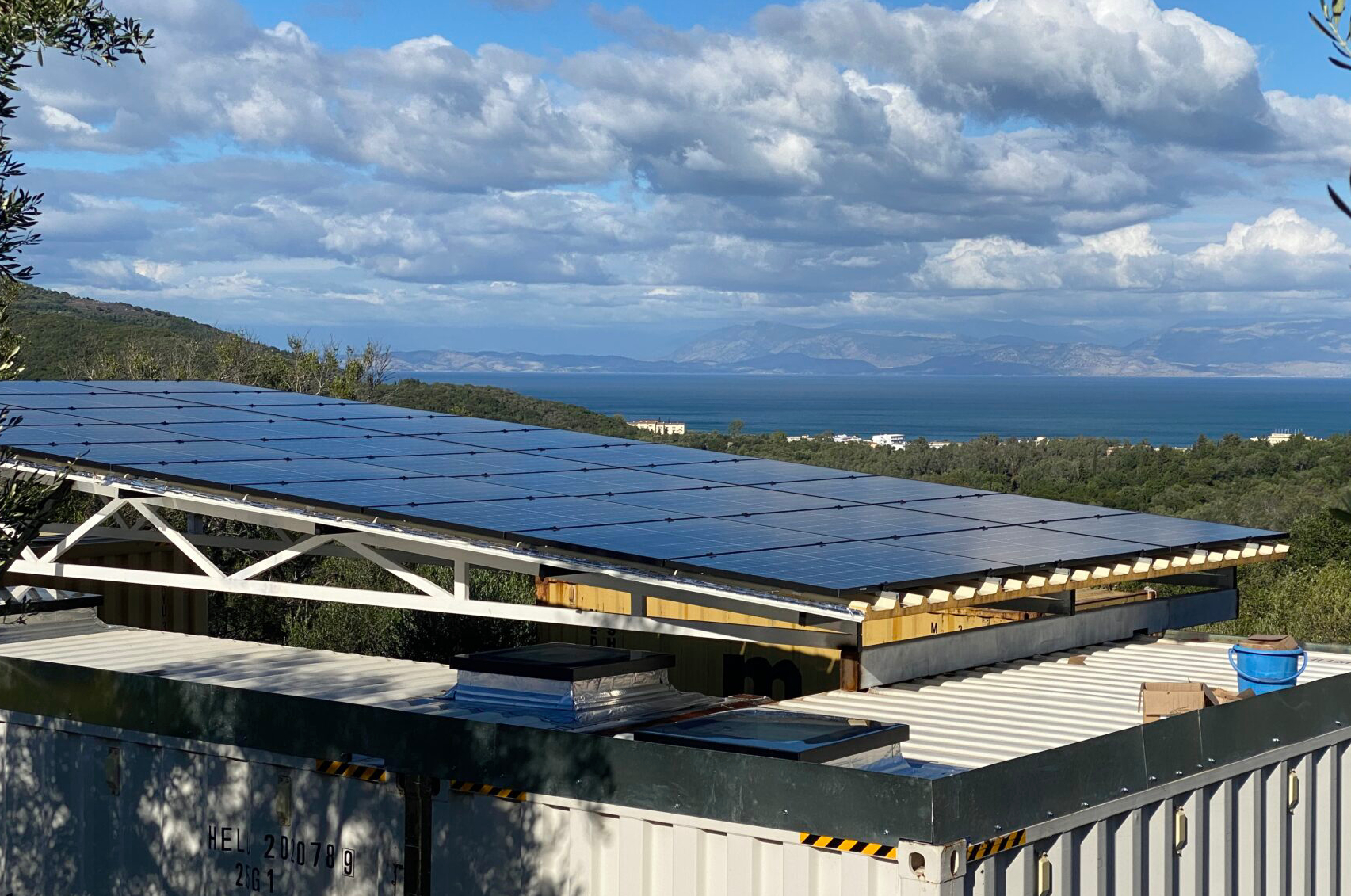
Off-grid solar refers to a solar power system that operates independent of the main power grid. This means it produces electricity from solar panels, stores it in batteries, and uses it to power homes and businesses without being connected to the traditional electrical grid.
Off-grid solar systems are often used in remote locations where access to the main power grid is limited or unavailable. They provide an alternative to relying on generators, which can be expensive and harmful to the environment. Off-grid solar systems require careful planning and design to ensure that they have the capacity to meet energy needs, and they are often more expensive upfront than grid-connected systems.
Battery storage is an essential component of off-grid solar systems. It allows excess electricity generated by the solar panels to be stored and used when the sun is not shining. The battery stores the energy generated during the day and releases it as needed, providing a continuous supply of electricity even during periods of low sunlight or at night.
There are several types of batteries used for off-grid solar storage, including lead-acid batteries, nickel-cadmium batteries, and lithium-ion batteries. Lead-acid batteries are the most traditional and widely used type of battery for off-grid solar systems, but they have limited lifespan and require maintenance. Lithium-ion batteries, on the other hand, are lighter, have a longer lifespan, and require less maintenance. However, they are also more expensive than lead-acid batteries. The choice of battery for an off-grid solar system will depend on factors such as the location, usage pattern, and budget.
Ask us how we can partner with you in providing a customized solution, and minimize your upfront costs.
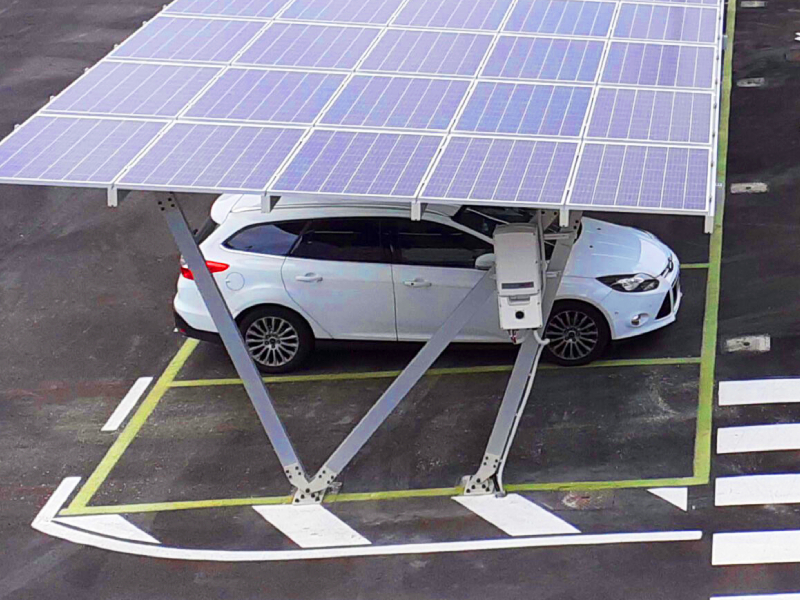
Charging stations are devices used to recharge the batteries of electric vehicles (EVs). They provide a convenient and fast way to charge EVs and can be installed at various locations, including homes, workplaces, shopping centers, and public areas. Charging stations come in different types and sizes, with varying charging speeds, to suit the needs of different EVs and drivers.
There are two main types of charging stations: Level 1 and Level 2. Level 1 charging stations use a standard household outlet and typically take 8 to 12 hours to fully charge an EV. Level 2 charging stations use a 220-volt outlet and can charge an EV in a few hours. Fast charging stations, also known as Level 3 charging stations, use a direct current (DC) connection and can charge an EV in less than an hour.
Charging stations can be publicly available for use by all EV owners or can be privately owned for exclusive use by a single owner or a group of owners. The widespread adoption of EVs and the increasing demand for charging stations are driving the growth of the charging station industry.
Our charging station bundles include the choice of solar panels, batteries for storage and various types of charging stations. Based on your specific need, location, usage pattern, and budget, we can put together a cost-optimized and technically top-notch solution that will meet your needs for years to come with room for expansion as the EV industry continues to evolve and mature.
Ask us how we can partner with you in providing a customized solution, and maximize your ROI.
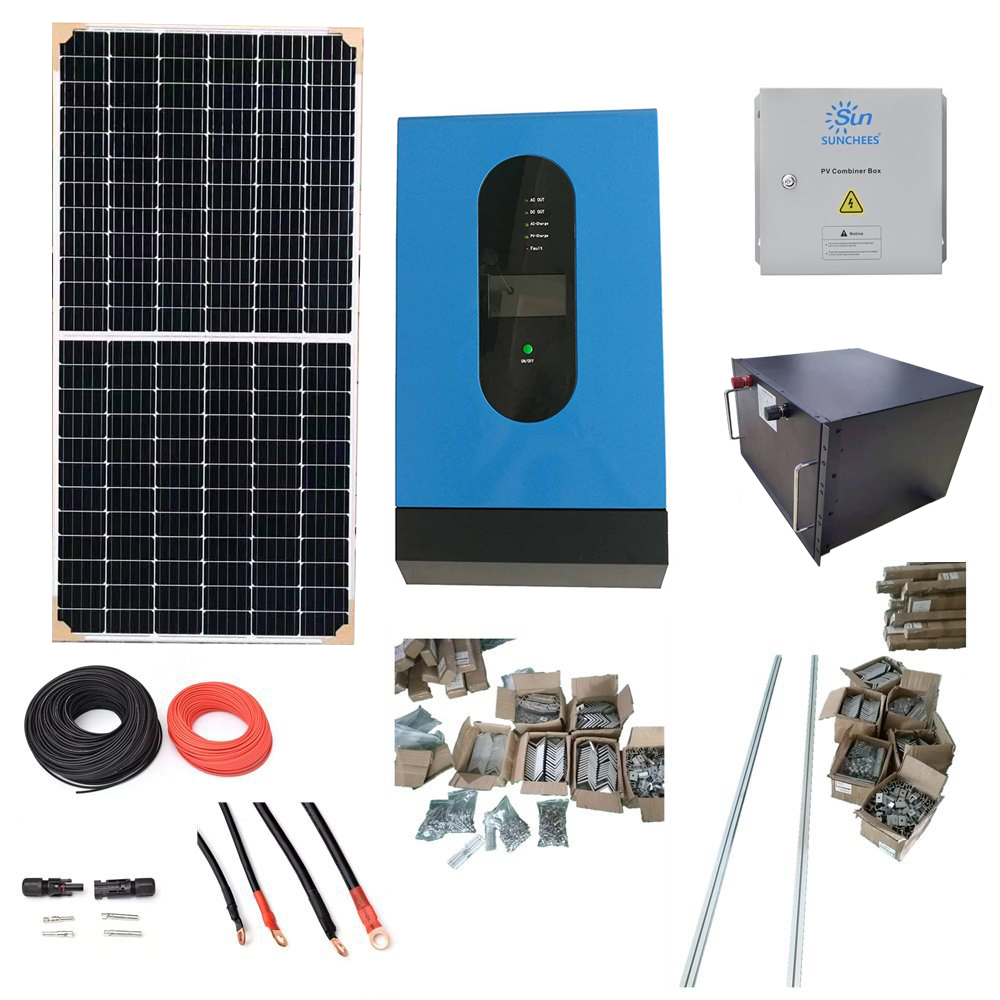
Solar bundled packages refer to complete systems for generating solar power that include all the necessary components for a fully functioning solar power system. These packages usually include solar panels, inverters, racking systems, battery storage, and sometimes even monitoring software. The idea behind bundled packages is to make it easier for homeowners and businesses to transition to solar power by providing a one-stop solution that includes all the components they need.
Bundled packages can vary in size and specifications depending on the intended usage and the customer's needs. For example, a small bundled package for a residential home might include only a few solar panels and a simple inverter, while a larger package for a commercial building might include dozens of panels and a more advanced inverter and monitoring system.
The advantage of using a bundled package is that it simplifies the process of installing a solar power system by taking care of all the necessary components and providing a single point of contact for support and maintenance. This can also save time and money by eliminating the need for customers to research and purchase individual components from different suppliers.
Ask us how we can partner with you in providing a customized solution, with best technical specifications to meet your needs and optimal product pricing.
Global Impact
We serve as a trusted advisor, intermediary and implementing partner all over the world, across private, nonprofit and public sectors. Our innovative and customized end-to-end solutions help global communities fight climate change and create a meaningful impact to change the world in the best possible way.
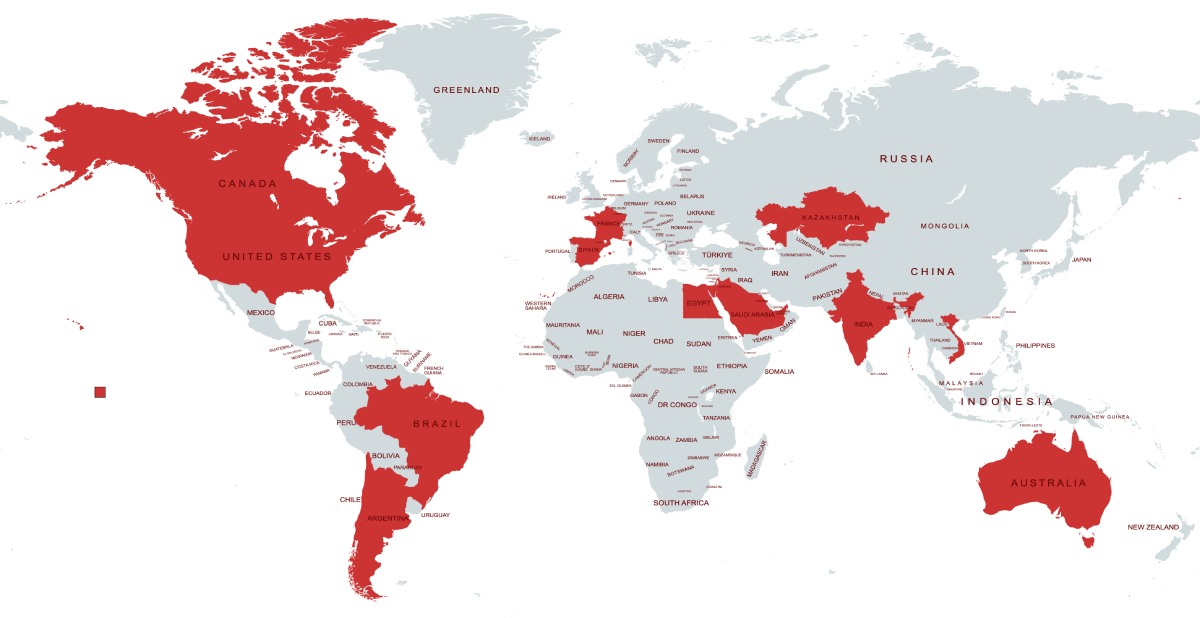
Our global footprint and portfolio of projects span the Americas, Europe, the Middle East, Asia and Australia. With offices in the USA and India and a partner network in other regions, our global reach combined with local presence allows us to provide a best of breed customer experience.
Our Clients
A few of our clients with whom we have long standing relationships.
Our Sustainability Goals
The UN's Sustainable Development Goals are a call for action by all – to promote prosperity while protecting the planet.
Listed below are some of the goals that Roarke has adopted as part of our core mission statement.
Good Health & Well-Being
Ensuring healthy lives and promoting the well-being for all at all ages is essential to sustainable development.
Quality Education
Obtaining a quality education is the foundation to improving people’s lives and sustainable development.
Gender Equality
Gender equality is not only a fundamental human right, but a necessary foundation for a peaceful, prosperous and sustainable world.
Clean Water and Sanitation
Clean, accessible water for all is an essential part of the world we want to live in.
Affordable and Clean Energy
Energy is central to nearly every major challenge and opportunity.
Industry, Innovation, and Infrastructure
Investments in infrastructure are crucial to achieving sustainable development.
Sustainable Cities and Communities
There needs to be a future in which cities provide opportunities for all, with access to basic services, energy, housing, transportation and more.
Climate Action
Climate change is a global challenge that affects everyone, everywhere.
Partnerships
Revitalize the global partnership for sustainable development.
Testimonials
Our clients rely on us as top-notch strategic collaborative partners, to build best-in-class solutions that empower their organizations and take it to the next level.
Portfolio
A selection of our projects.
- All
- Rooftop
- Utility Scale
- O & M
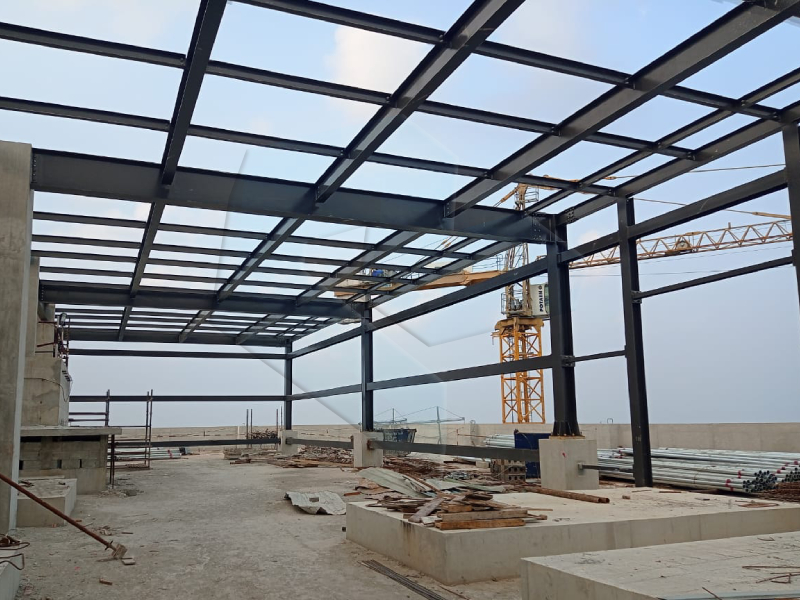
535KW Rooftop
Tamil Nadu, INDIA
Location: Tamil Nadu, INDIA
Type: Commercial Rooftop
Completion: Ongoing
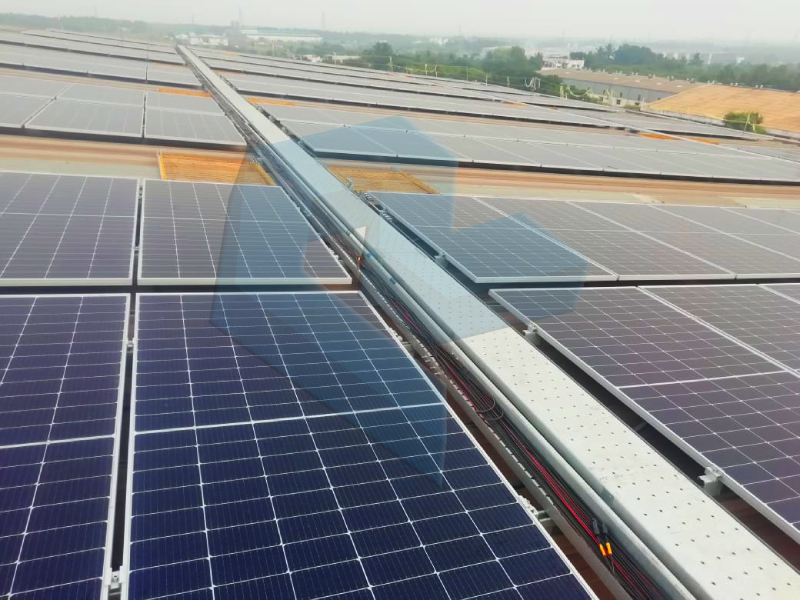
270KW Rooftop
Tamil Nadu, INDIA
Location: Tamil Nadu, INDIA
Type: Commercial Rooftop
Completion: Dec 2022
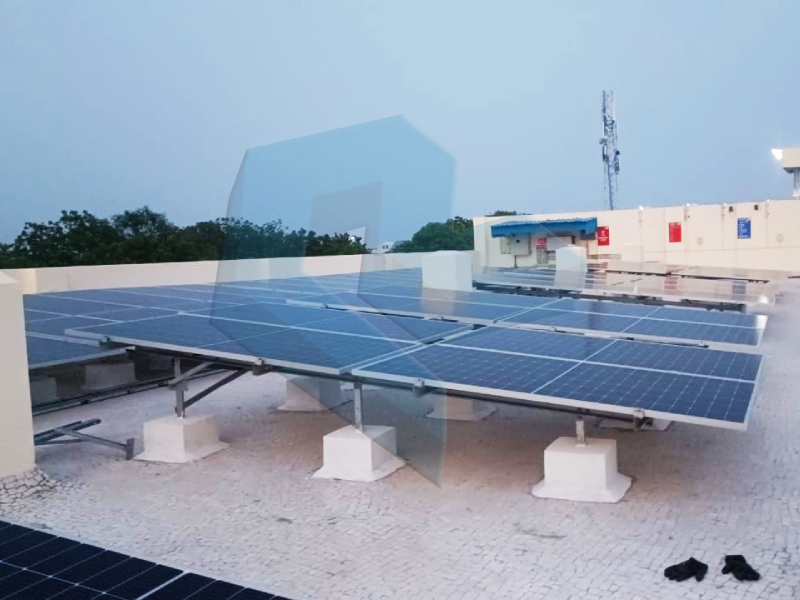
100KW Rooftop
Tamil Nadu, INDIA
Location: Tamil Nadu, INDIA
Type: Commercial Rooftop
Completion: Nov 2022
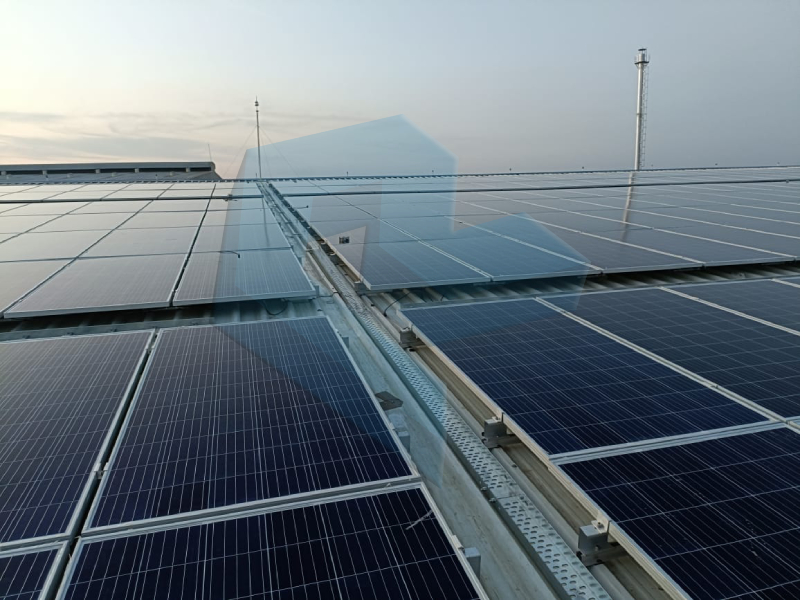
200KW Rooftop
Tamil Nadu, INDIA
Location: Tamil Nadu, INDIA
Type: Commercial Rooftop
Completion: Aug 2022
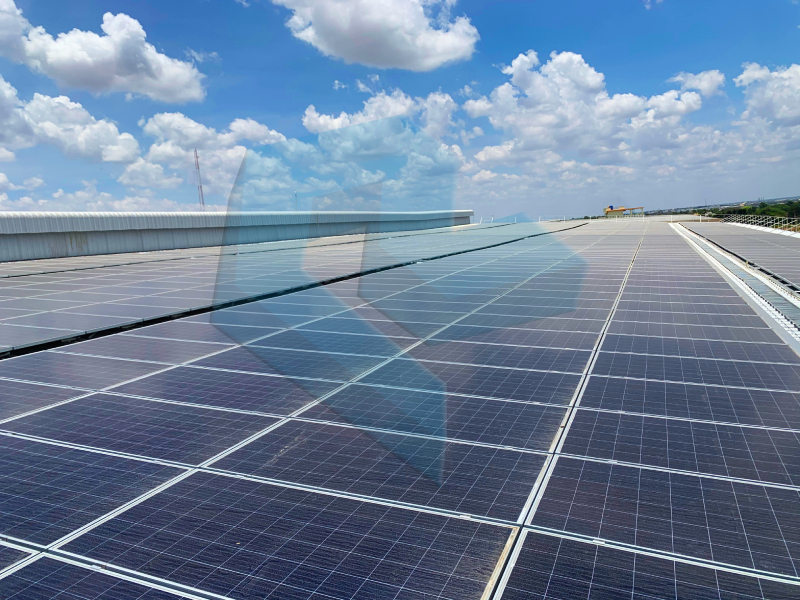
300KW Rooftop
Tamil Nadu, INDIA
Location: Tamil Nadu, INDIA
Type: Commercial Rooftop
Completion: Mar 2022
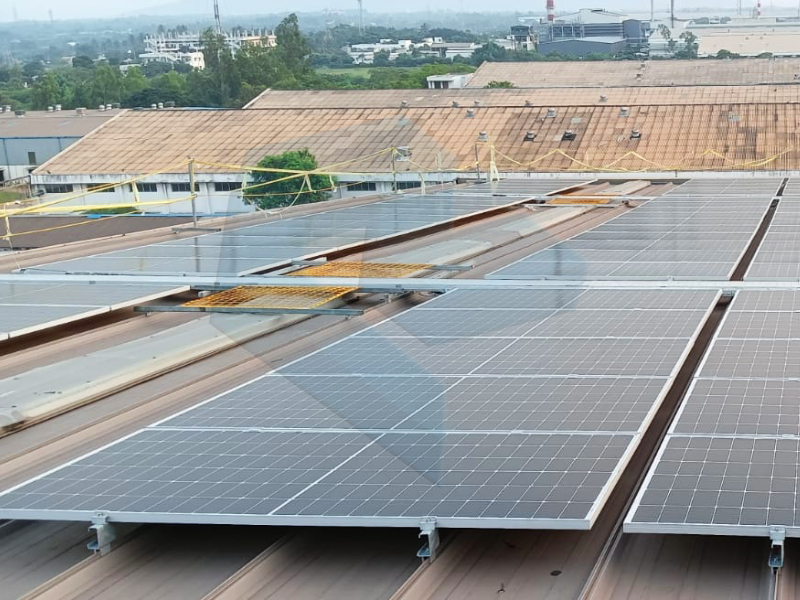
400KW Rooftop
Pondicherry, INDIA
Location: Pondicherry, INDIA
Type: Commercial Rooftop
Completion: Dec 2021

600KW Rooftop
Pondicherry, INDIA
Location: Pondicherry, INDIA
Type: Commercial Rooftop
Completion: Oct 2021
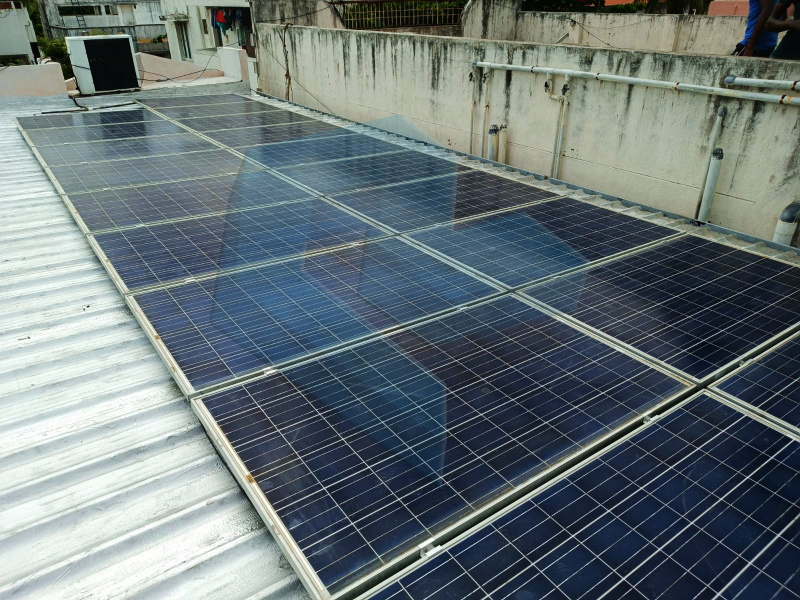
10KW Rooftop
Tamil Nadu, INDIA
Location: Tamil Nadu, INDIA
Type: Residential Rooftop
Completion: Feb 2022
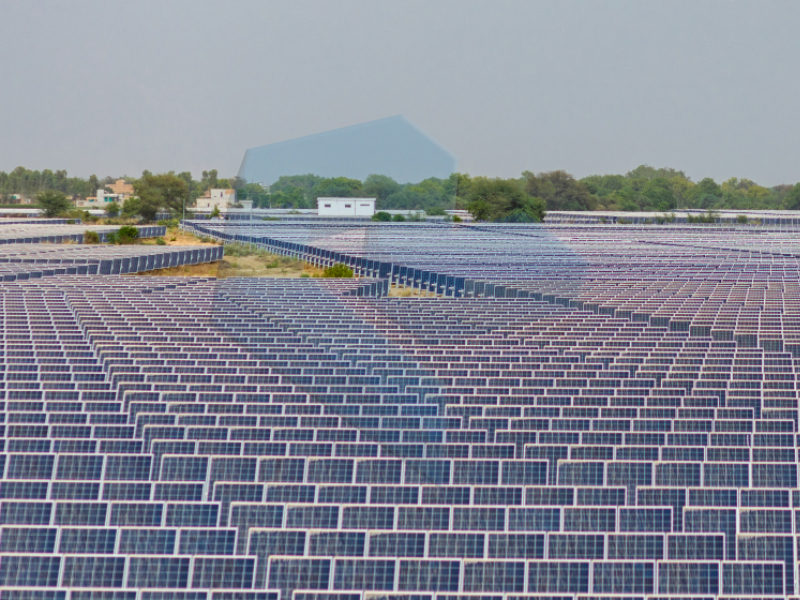
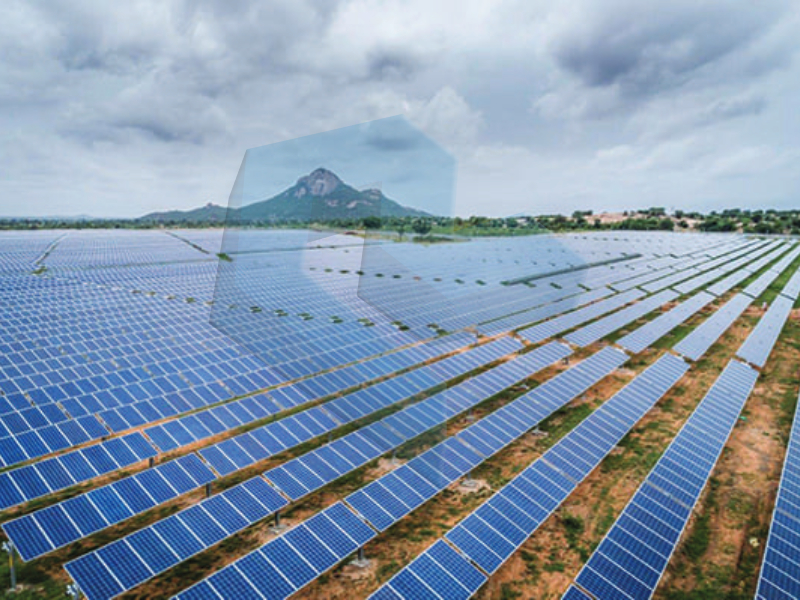
120MW O&M
Telangana, INDIA
Location: Telangana, INDIA
Type: Utility Scale O&M
Completion: Ongoing
Leadership Team
We aim to be the brand that inspires, creates meaningful impact, and makes the customer experience better for everyone every time.

Madhan Kumar K

Venkat Ananth

Sanket Deshmukh
Career Opportunities
Come join us to find innovative solutions that generate sustainable and meaningful impact.
-
Tele Caller
The Sales Telecaller will be responsible for making outbound calls to potential and existing customers to promote and sell our products or services. They will play a crucial role in generating revenue for the organization and are expected to meet or exceed sales targets. If interested in this position, please send your resume and coverletter to careers@roarkeenergy.com.
-
O&M Engineer
If you are an O&M Engineer with experience in all aspects of Solar Site Operations and Maintenance, please reach out to us at careers@roarkeenergy.com with your updated resume and cover letter.
-
Site Engineer
If you are a Site Engineer with experience in Solar Site Installation and Commissioning, please reach out to us at careers@roarkeenergy.com with your updated resume and cover letter.
Contact
Our global reach combined with local presence provides a best of breed customer experience. Reach out to us to engage, partner and generate impact.
Locations:
734 W Polk St, Phoenix, AZ 85007, USA
20 Gandhi Street, Chennai 600106, INDIA
Email:
hello@roarkeenergy.com
Call:
USA: +1 607 624 7165
India: +91 44 4284 5115











